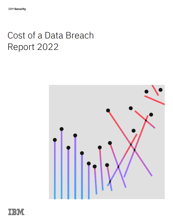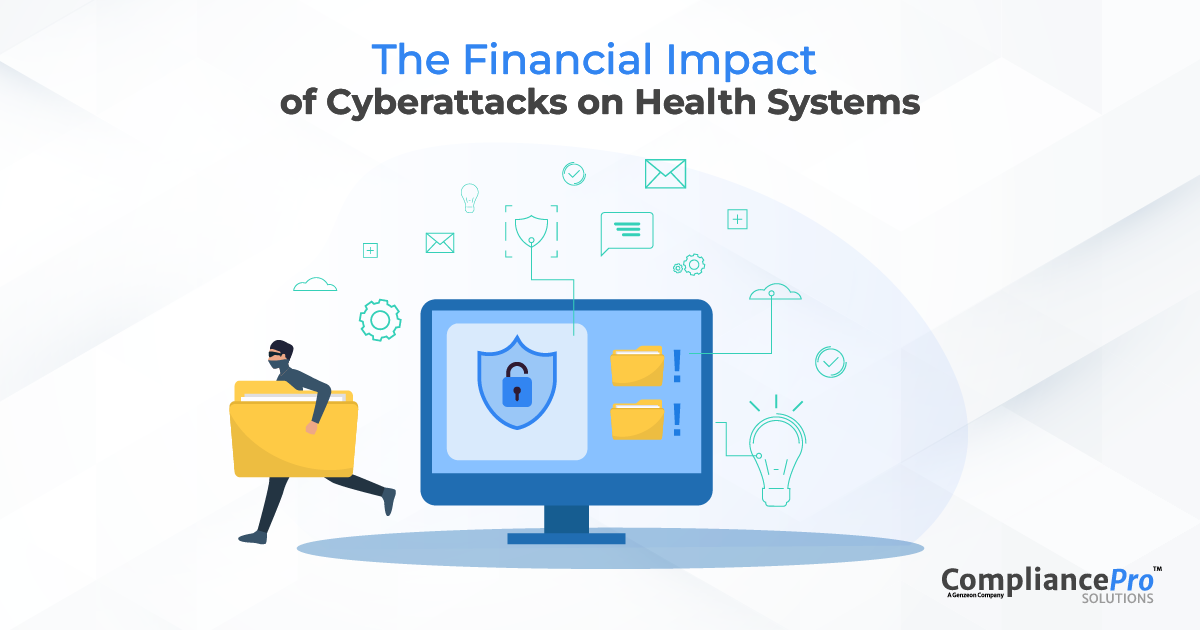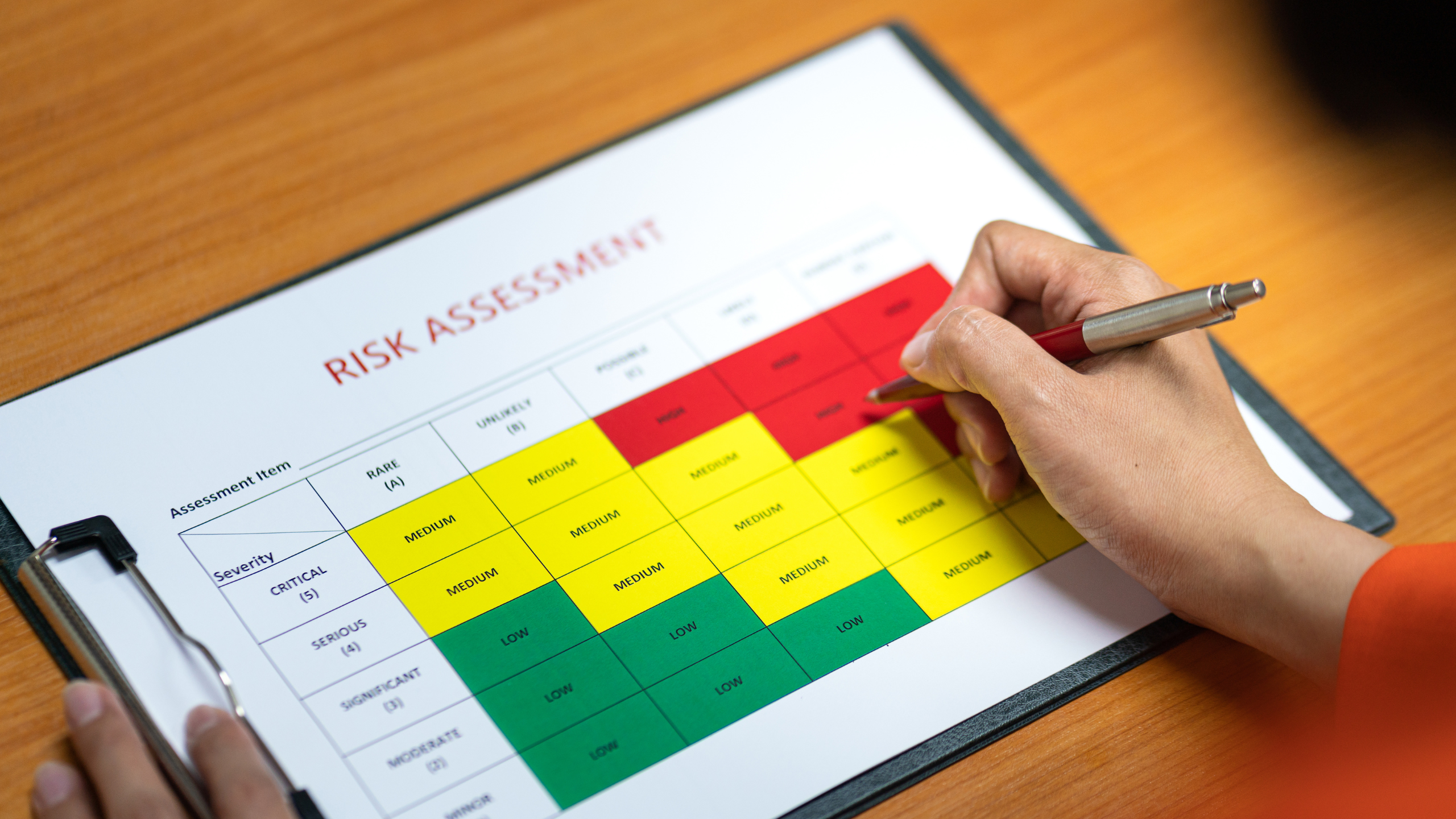The healthcare industry relies heavily on technology and interconnected systems in today's digital landscape to deliver efficient, quality care.
However, alongside these advancements comes the growing threat of cyberattacks. In addition to compromising patient data and safety, cyberattacks also impose a considerable financial burden on health systems.
In this blog post, we will explore the examples of financial pressure that cyberattacks inflict on health systems. Also, let’s have a look into the common costs they incur, whether they are direct or indirect.
Financial Losses from Data Breaches
The possibility of losing patient data due to data breaches is one of the most obvious financial consequences of a cyberattack.
This risk becomes even more apparent when organizations choose to pay ransom to ransomware attackers for the decryption key or when they opt to pay cyberattack response experts for alternative and legal methods to restore data that has been locked by ransomware.
Health systems are responsible for protecting sensitive information, including medical records, billing details, and other important identification information.
When a cyberattack compromises this data, the consequences can be far-reaching and damaging.
Not only does the health system face significant costs associated with investigating and mitigating the breach, but it may also face legal penalties, regulatory fines, and potential lawsuits from affected patients, matters we will delve into further later on.
Operational Disruptions and Downtime
 The healthcare industry has experienced the highest average cost of data breaches for 12 consecutive years. In 2022, healthcare breach costs reached a new record high, with the average breach costing nearly $10.1 million, a 41.6% increase since the 2020 report. Healthcare remains the most expensive industry for data breaches. The sector is heavily regulated and considered critical infrastructure by the US government, contributing to its vulnerability to cyberattacks, as reported by the "Cost of a Data Breach Report 2022, IBM."
The healthcare industry has experienced the highest average cost of data breaches for 12 consecutive years. In 2022, healthcare breach costs reached a new record high, with the average breach costing nearly $10.1 million, a 41.6% increase since the 2020 report. Healthcare remains the most expensive industry for data breaches. The sector is heavily regulated and considered critical infrastructure by the US government, contributing to its vulnerability to cyberattacks, as reported by the "Cost of a Data Breach Report 2022, IBM."
"Healthcare breach costs reached a new record high, with the average breach costing nearly $10.1 million."
Cyberattacks can disrupt the daily operations of a health system, leading to costly downtime.
For example, in the event of a ransomware attack, the attackers can block access to important computer systems in a hospital. As a result, the hospital may have to resort to manual, non-digital methods of performing administrative tasks, which can be time-consuming and costly. In some severe cases, the hospital may even have to temporarily suspend services until the situation is resolved and regain access to their systems. During this downtime, healthcare providers may be unable to treat patients, resulting in lost revenue and increased patient dissatisfaction.
The recent report by Becker’s Healthcare, Cyberattacks on hospitals: An escalating 'regional disaster', published on June 26, highlighted the disruptive and concerning impact of a ransomware attack on the hospital's ability to provide timely and appropriate medical care to its patients.
The financial impact can be substantial, particularly for large health systems that serve a significant number of patients and rely on consistent operations for their financial sustainability.
Reputational Damage
A cyberattack can severely damage the reputation of a health system.
News of a security breach can erode patient trust and confidence, leading to a decline in patient volumes and a potential loss of revenue.
Rebuilding trust takes time and resources, including public relations efforts and patient education.
All of these activities impose additional financial strain on the health system.
Regulatory Compliance and Remediation Costs
Healthcare organizations must adhere to various data protection regulations.
In the aftermath of a cyberattack, health systems must invest in compliance audits, security assessments, and remediation efforts to ensure regulatory requirements are met.
The financial impact can be substantial, considering the potential fines and penalties associated with failure to comply.
Cybersecurity Investments
To mitigate the risk of future cyberattacks, health systems must invest in robust cybersecurity measures. This includes upgrading security infrastructure, implementing advanced threat detection systems, conducting regular security audits, secure cyber insurance, and providing cybersecurity training for staff.
These investments come at a significant financial cost but are needed to protect sensitive patient data and ensure the continuity of healthcare services.
Hospitals Closed Their Doors for Good
The consequences of a cyberattack can be so severe for some hospitals that they are unable to recover, ultimately resulting in permanent closure.
When hospitals face extended operational disruptions, coupled with the inability to fully recover from the financial and reputational damages caused by the cyberattack, the worst-case scenario becomes a grim reality. The doors of the hospital are forced to close for good.
St. Margaret's Health closed its hospital in Spring Valley, Illinois, as a result of the financial fallout of the ransomware attack. Another hospital operated by St. Margaret Health in the nearby town of Peru already closed its doors in January due to the same reason, as reported by Becker’s Healthcare, Some hospitals are one ransomware attack away from closing on June 23.
Indeed, it is crucial to delve deeper into the reasons why these hospitals, and many other hospitals, were impacted by ransomware attacks.
Ensuring Security: Prioritizing Preventive Measures with CompliancePro Solutions
Health systems must prioritize cybersecurity as an integral part of their operations and allocate resources accordingly.
The financial pressure that cyberattacks exert on health systems cannot be understated. From the immediate costs of investigating and mitigating breaches to the long-term consequences of reputational damage and regulatory compliance, the impact is significant.
Enhance your healthcare organization's cybersecurity and protect against the financial impacts of cyberattacks with CompliancePro Solutions’ cutting-edge IT solutions. Safeguard patient data, minimize operational disruptions, and ensure regulatory compliance by partnering with our experts.
Trust CompliancePro Solutions to provide robust cybersecurity measures tailored to the unique needs of the healthcare industry. Strengthen your organization's resilience and financial stability today.


